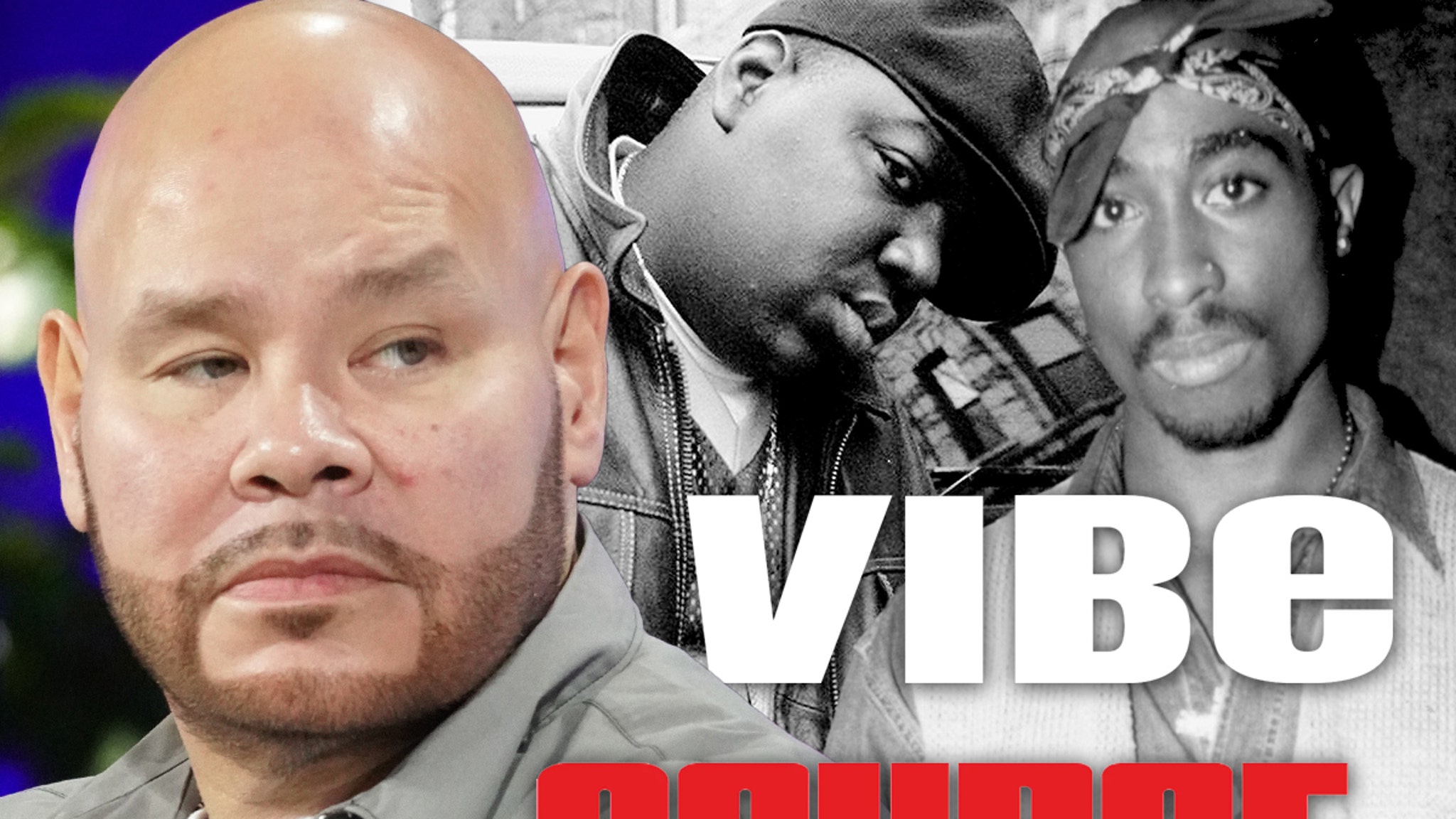Products You May Like
In the dynamic world of hip-hop, there are voices that resonate louder than others, and one of those iconic figures is none other than Fat Joe. Recently, he has entered into a heated conversation regarding the role of contemporary hip-hop journalists. This discussion stems from the recent remarks made by Kendrick Lamar during an exclusive interview with SZA, which has ignited controversy within the music journalism industry. Fat Joe’s critique of today’s media landscape is rooted in a belief that it fails to adequately represent artists and often leans toward sensationalism, creating disharmony rather than understanding.
Fat Joe, known for his insightful takes on hip-hop culture, shared his thoughts in a recent interview where he referenced how the media’s coverage of monumental artists like Tupac Shakur and The Notorious B.I.G. contributed to their tragic fates. According to him, the narrative created by journalists often exacerbates conflict, leading to severe consequences. This perspective is especially poignant given the historical context of the East Coast-West Coast rivalry, which Fat Joe firmly believes was fueled by irresponsible journalism.
Drawing upon the past, Fat Joe suggested that prominent publications such as Vibe and The Source played pivotal roles in amplifying tensions, even going as far as to claim that the blood of Tupac and Biggie rests on the hands of those who perpetuated this conflict through their writing. His candid admission serves as a stark reminder of the power that media holds in shaping stories and public perception.
The Bronx rapper is not alone in his sentiments. Recent discussions within the industry echo his thoughts, with remarks from Benzino suggesting that the infamous 1995 Source Awards ignited the East Coast-West Coast feuds. These statements underline a growing concern among veteran artists about the integrity of journalism in their field. In a world where sensational headlines often take precedence over factual storytelling, Fat Joe’s accusations call for a reassessment of journalistic ethics in hip-hop.
Further solidifying his point, Fat Joe lamented the heavy-handed approach that many journalists continue to adopt, emphasizing a notable trend of negative storytelling. He argued that instead of exploring the intricacies of an artist’s narrative, media often gravitates toward conflict-driven narratives that leave little room for positivity and truth. Such a culture, he argues, not only misrepresents artists but also stifles the rich tapestry of stories within the hip-hop community.
As discussions continue regarding the responsibilities of journalists in the hip-hop sphere, Fat Joe’s comments resonate deeply with those who have witnessed the industry evolve over the decades. With authenticity being key to the credibility of hip-hop, the call for more conscientious and balanced reporting is louder than ever. The potential consequences of irresponsible journalism, as pinpointed by Fat Joe, serve as a chilling reminder of the power and responsibility that come with storytelling in the vibrant yet volatile world of hip-hop.
As artists and fans alike reflect on the currents of today’s journalism, the hope remains that a more compassionate and insightful approach can emerge, ensuring that the legacies of icons like Tupac and Biggie are remembered not just in a narrative of conflict but in the spirit of unity and artistry that they embodied.Kendrick Lamar’s latest track “Not Like Us” has stirred quite a commotion in the music world by alluding to his well-known rivalry with Drake. Critics have expressed disappointment, arguing that Lamar’s approach lacks the necessary depth to confront the intricacies of their widely publicized feud. This discomfort was only intensified by the defense from Terrence “President Punch” Henderson, the head of Top Dawg Entertainment, who criticized contemporary journalists, suggesting that they often conduct lackluster interviews.
Furthermore, this buzz isn’t new; it has been brewing for years. DJ Akademiks ignited the flames by critiquing hip-hop’s “Big 3″—Kendrick, Drake, and J. Cole—particularly when he took issue with J. Cole for opting to speak with sports figure Bob Myers instead of engaging in more traditional hip-hop journalism. This led to a majority of hip-hop writers getting defensive, feeling that Punch’s remarks would undermine their role in the industry.
Joe Budden, a prominent podcaster, also chimed in, pointing out that the landscape has significantly changed. With the rise of social media and the accessibility of podcasting technology, artists now wield greater influence over their narratives. He lamented that privileged narratives shaped by “gatekeepers” of the industry have historically led to detrimental portrayals of artists, often highlighting controversies over talent.
As a part of this evolving conversation, Budden expressed his support for the new generation of streaming and social media content creators, likening his ambitions in hip-hop journalism to those of Oprah Winfrey. He believes that artist autonomy allows them to share their messages on their terms, without the fear of being misrepresented or misinterpreted by traditional media channels. Budden noted his own experiences with journalism, explaining how being asked about artists he hadn’t even met resulted in unnecessary feuds based on sensationalist reporting.
In an unexpected turn, Budden recently turned to the political arena, taking a stand alongside fellow Puerto Rican artists Bad Bunny and Nicky Jam against comedian Tony Hinchcliffe. They condemned a joke made by Hinchcliffe during a Donald Trump rally, emphasizing a commitment to defend their heritage and address issues affecting their community.
This engagement not only highlights Budden’s pivot into political advocacy but also underscores how closely intertwined music and social responsibility have become. From confronting rivalries through lyrics to using public platforms for advocacy, the role of the artist has drastically changed in a world where narratives are being rewritten with every click and stream. The landscape of hip-hop journalism and public sentiment continues to evolve, reflecting broader cultural shifts in how artists and journalists interact, engage, and influence society.
